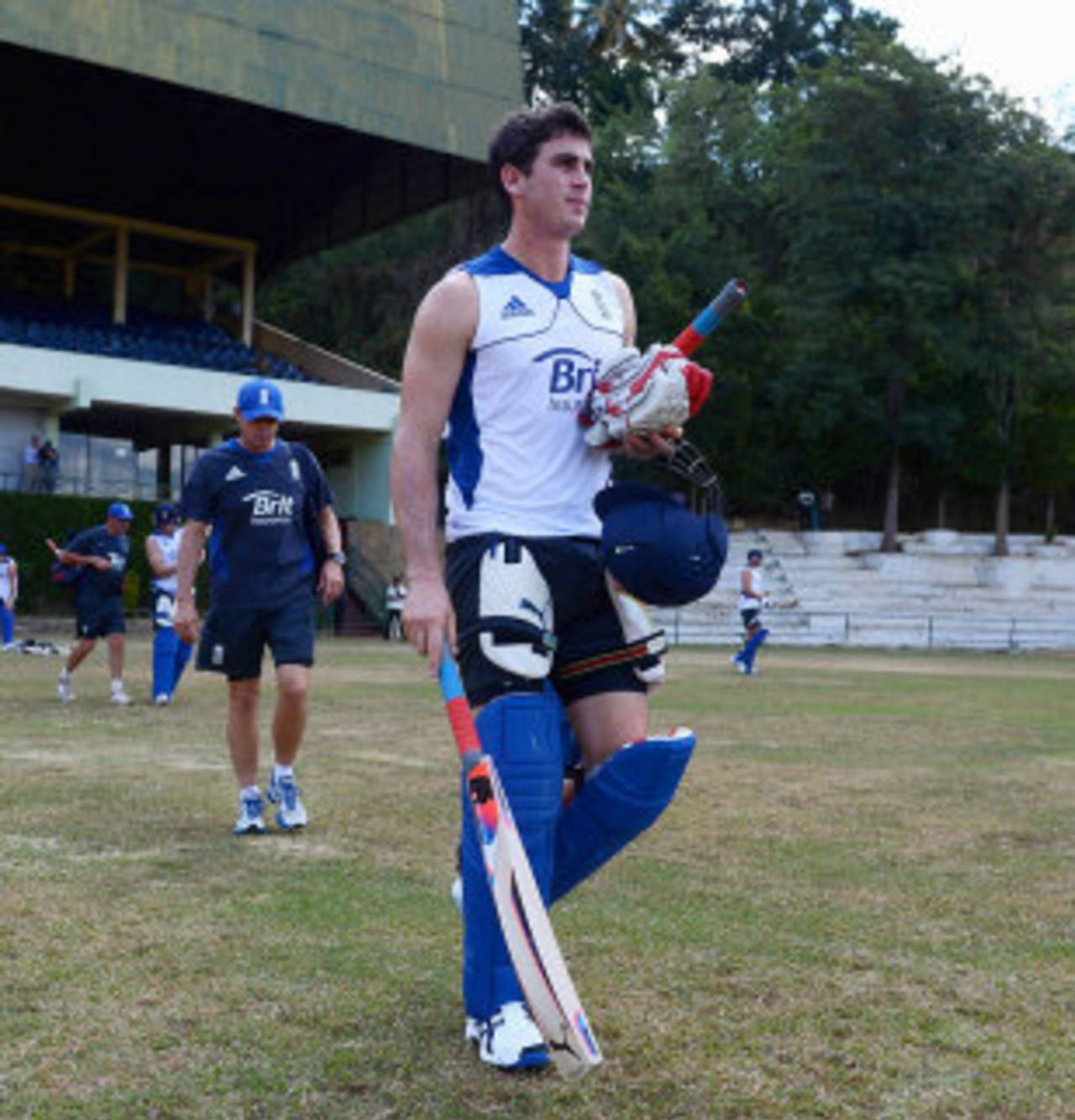Like Greek prime ministers, Henry VIII's wives and World War I fighter pilots, the career of an England wicketkeeper - in limited-overs cricket, at least - often appears short and brutal.
Craig Kieswetter is the
latest in a long line of casualties. Indeed, there are now 13 men still playing county cricket who have, at some time, kept wicket for England in international cricket. Half the counties can claim an England wicketkeeper on their staff; some can claim two. A strong argument could be put together to suggest England have not had a settled ODI keeper since the retirement of Alec Stewart in 2003.
Perhaps Kieswetter may feel a little unfortunate. Asked to open the innings - a novel experience at the time - he was then moved back into the middle-order to accommodate a faltering Kevin Pietersen. His keeping, while raw - especially to spinners - has improved steadily and, aged 25, his best years should be ahead of him. In truth, though, he has not grasped the opportunity as he might have done. England have invested nearly three years in him but he never really showed any mastery of pacing an ODI innings and continued to face more dot balls than was acceptable. After 46 ODIs, he has had his chance.
He faces an uncertain future. If England now see his Somerset team-mate
Jos Buttler as a more viable wicketkeeping option, they would be quite within their rights to request that Somerset give him the gloves ahead of Kieswetter whenever possible. While that decision will remain Somerset's, they will be well aware of the importance of the success of the England team in funding the game throughout the land and mindful of their responsibility to help the national side whenever possible.
Kieswetter may also reflect that, if he is to win back a place, it is likely to be in the middle-order. Opening the batting with Somerset - as he does at present in limited-overs cricket - will be of little value. Hampshire, who have sought a new keeper for some time, is one obvious venue; Worcestershire is somewhat less likely due to their financial situation. Hampshire's current keeper, Michael Bates, 22, is quite excellent behind the stumps but a modest batsman, while Worcestershire have just signed a 24-year-old with a far-from-glorious record in the Birmingham League.
As things stand, it appears likely that
Jonny Bairstow will be handed the gloves in ODIs when England arrive in New Zealand. Even that is not certain, however, as Buttler is currently the man in possession and could produce a match-winning performance in the final ODI in India that would make him hard to drop. As a consequence, it is hard to ignore the conclusion that, just six games ahead of the Champions Trophy, England are back to square one when it comes to knowing who their best ODI keeper might be.
Neither Bairstow or Buttler - both of whom are also competing for the position in T20s - would claim to be the finished article with bat or gloves. Buttler is not even first-choice keeper with his county. They are developing talents. They need careful nurturing to fulfil their huge potential. Premature exposure and subsequent disappointment will hurt more often that it helps.
The concern is that England will commit the same error as they have so often in the past: promote a keeper before they are ready and then jettison them too soon with shattering consequences for the rest of their careers. There are copious examples: Chris Read, James Foster and, to a lesser extent, Steven Davies were all fast-tracked into the side and, when it became clear that the elevation came too soon, spat back out, often with harsh judgements made about their value.
Little mind seems to have been paid to their subsequent improvement, either. Certainly in the case of Read, a vastly underrated batsman, and Foster, who may still be the best keeper in the world, England have missed out on the finest years of their careers. Both remain high-quality cricketers but missed out largely because England went through a long period where they insisted their keepers in ODI cricket also opened the batting.
There is a lesson here for England. They must be careful not to rush Ben Foakes, the highly rated 19-year-old from Essex, who they have fast-tracked into the Lions squad after only five first-class appearances as the only wicketkeeper on their short trip to Australia. He is some way from commanding a first-team place at Essex - Foster and, perhaps, the unsung Adam Wheater stand ahead of him - and will surely fare better in international cricket if he is allowed time to develop in domestic cricket first.
Few players - be they batsmen, bowlers or wicketkeepers - are at their best in their early twenties. Perhaps, if England really do see the Champions Trophy as a priority, they should consider selecting a more mature professional as their keeper. Read, Foster, Phil Mustard, Matt Prior and Tim Ambrose - players who have experienced the highs and lows of a life in professional sport and learned the techniques and coping mechanisms to deal with it - would all do a decent job and might allow young talents the time to learn their trade away from the unforgiving spotlight.
George Dobell is a senior correspondent at ESPNcricinfo
